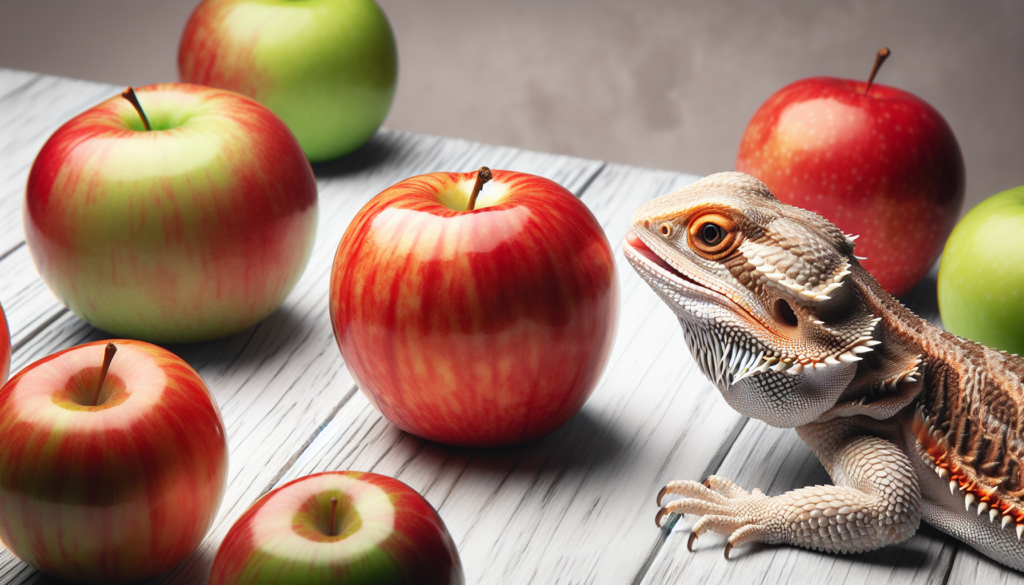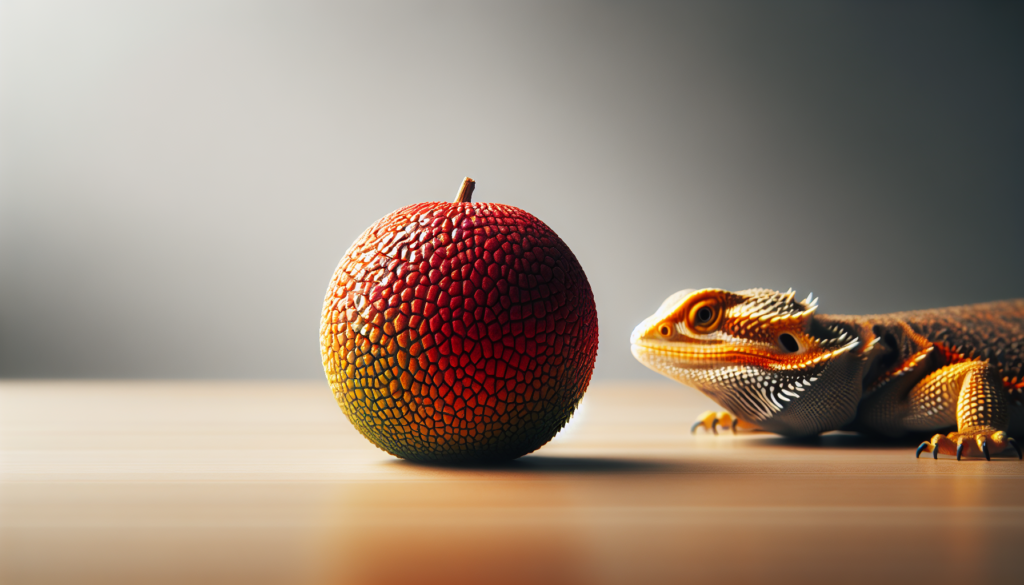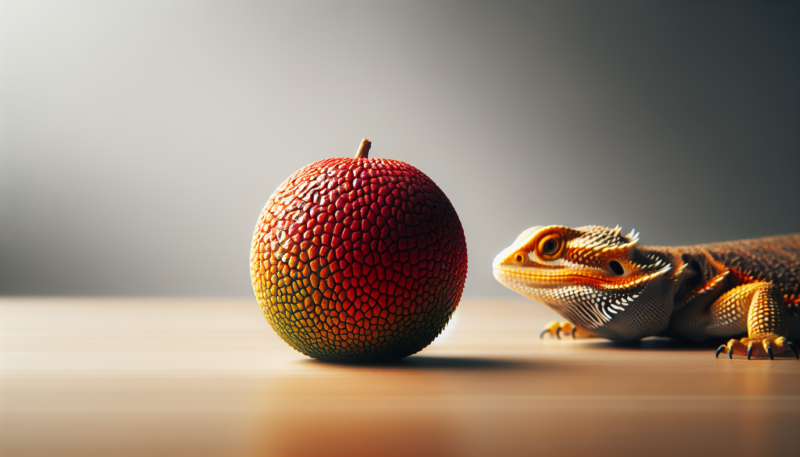If you’ve recently welcomed a bearded dragon into your home, you may be wondering how often you should incorporate fruit into their diet. Fruit can be a tasty and nutritious addition to their meals, but it’s important to find the right balance. In this article, we’ll explore the best feeding frequency for your bearded dragon when it comes to enjoying their favorite fruits. Whether you’re a seasoned reptile owner or a first-time caretaker, we’ll provide you with the information you need to keep your bearded dragon healthy and happy.
Introduction
Welcome to our comprehensive article on understanding the nutritional needs of bearded dragons and the role of fruits in their diet. As a proud bearded dragon owner, you want to ensure that your scaly friend is receiving a well-balanced and nutritious diet. While insects and vegetables are the foundation of their diet, fruits can also be a healthy addition. In this article, we will explore the key nutrients necessary for your bearded dragon’s well-being, the types of fruits that are suitable for them, the appropriate frequency of fruit consumption, and potential risks associated with overfeeding. So let’s dive in and learn how to keep your bearded dragon happy and healthy!
Understanding the Nutritional Needs of Bearded Dragons
Bearded dragons are omnivorous reptiles and have specific dietary requirements that must be met to maintain optimal health. Key nutrients for bearded dragons include protein, calcium, phosphorus, vitamins, and minerals. These nutrients play a vital role in their growth, bone development, immune function, and overall well-being. While insects, such as crickets and mealworms, are excellent sources of protein, fruits can contribute important vitamins and minerals to their diet.
Balancing a bearded dragon’s diet is crucial to prevent nutritional deficiencies or excesses. As an owner, it is your responsibility to ensure that their diet includes a proper balance of protein, vegetables, and fruits. Overfeeding or underfeeding any particular food group can lead to health issues, so finding the right balance is essential.
The role of fruits in a bearded dragon’s diet should be limited and complementary. Fruits are a great source of hydration for your pet and can provide natural sugars, fiber, vitamins, and antioxidants. However, they should not replace the primary sources of nutrition – insects and vegetables. The key is to offer fruits as occasional treats rather than a staple food.

Types of Fruit Suitable for Bearded Dragons
Not all fruits are suitable for bearded dragons. Some fruits may be toxic or cause digestive issues in these reptiles. It is vital to be aware of the safe fruits to include in your bearded dragon’s diet and those that should be avoided.
Safe fruits for bearded dragons include strawberries, blueberries, raspberries, mangoes, kiwis, apples, pears, and bananas. These fruits provide a variety of flavors, textures, and nutrients that can be enjoyed by your bearded dragon in moderation.
However, there are fruits that should be avoided when feeding bearded dragons. Citrus fruits, such as oranges, lemons, and grapefruits, are high in citric acid and can upset their delicate digestive system. Avocados, cherries, and grapes should also be avoided due to their high sugar content or potential toxicity to bearded dragons. Always research and consult a veterinarian if you’re uncertain about a specific fruit.
Frequency of Feeding Fruits to Bearded Dragons
Determining the appropriate fruit intake for your bearded dragon is important to maintain a balanced diet. While fruits can be a healthy addition to their meals, they should be fed in moderation. Feeding fruits too frequently or in large quantities can lead to gastrointestinal issues and imbalances in their overall diet.
Serving sizes for fruits should be appropriate for the size and age of your bearded dragon. As a general guideline, you can offer a few small pieces of fruit once or twice a week. Remember that fruits should never make up more than 10% of their total diet. Ensuring variety in fruit selection can also provide a broader range of nutrients and flavors for your pet.
Monitoring the effects of fruit consumption is crucial to observe how your bearded dragon responds to the introduction of fruits. Watch their behavior, appetite, and bowel movements for any signs of discomfort or digestive issues. Dietary imbalances can manifest as changes in energy levels, appetite loss, weight loss or gain, diarrhea, or abnormal stool consistency. If you notice any concerning signs, it is best to seek veterinary advice.

Introducing Fruits to Young Bearded Dragons
If you have a young bearded dragon, it is essential to introduce fruits gradually. Their digestive systems are still developing, and sudden changes to their diet may cause gastrointestinal distress. Start with small amounts of mashed or pureed fruits and observe how they tolerate them. Slowly increase the quantity and variety of fruits over time as they grow and their digestive system becomes more resilient.
Monitoring digestion and tolerance is crucial when introducing fruits to young bearded dragons. Keep a close eye on their droppings to ensure that they are passing stools regularly and the consistency is normal. If you notice any changes or abnormalities, consult your veterinarian for further guidance.
Potential Risks of Overfeeding Fruits to Bearded Dragons
While fruits can be a healthy addition to a bearded dragon’s diet, overfeeding can pose risks to their health. It is important to be aware of these potential risks and take steps to avoid them.
High sugar content in fruits can lead to obesity and negative impacts on the bearded dragon’s overall health. Feeding fruits excessively can contribute to weight gain and the development of obesity-related conditions. It is crucial to maintain a proper balance of nutrients and limit the amount of fruit offered to prevent these issues.
Gastrointestinal issues can arise from overconsumption of fruits. Bearded dragons have a sensitive digestive system, and too much fruit can disrupt their gut flora and lead to diarrhea or other digestive distress. Ensure that fruits are given in appropriate serving sizes and not as the main component of their diet.
Another risk associated with overfeeding fruits is interference with calcium absorption. Bearded dragons require adequate calcium for bone health and proper growth. Fruits, particularly those high in oxalates, can bind to calcium and hinder its absorption. This can lead to metabolic bone disease, a serious condition that can result in weak bones and deformities. Limiting fruit intake and providing a variety of calcium-rich foods can help mitigate this risk.
Alternatives to Fresh Fruits
If you are concerned about the sugar content in fresh fruits or want to offer more variety to your bearded dragon, there are alternatives available. Freeze-dried or dehydrated fruits can be an option for providing the nutritional benefits of fruits without the high water content or excess sugar. These products are often more concentrated and can be offered sparingly as a treat.
Incorporating vegetables into the diet is also crucial for a well-rounded bearded dragon’s meal plan. Vegetables offer a wide array of nutrients and fiber that contribute to their overall health. Leafy greens, such as kale, collard greens, and dandelion greens, are excellent choices. Additionally, vegetables like carrots, bell peppers, and squash can be included in their diet. Remember to research and ensure that the vegetables you choose are safe for bearded dragons.
Important Considerations for Fruit Selection
When selecting fruits for your bearded dragon, there are a few additional factors to consider beyond their safety and nutritional value.
Organic vs. conventionally grown fruits: Opting for organically grown fruits can reduce potential exposure to pesticides or harmful chemicals that may be present on conventionally grown produce. This can help minimize the risk of exposing your bearded dragon to potentially harmful substances.
Avoiding fruits treated with pesticides: Regardless of whether you choose organic or conventionally grown fruits, it is crucial to wash them thoroughly before offering them to your bearded dragon. This will help remove any residues or traces of pesticides that may be present.
Removing seeds and pits: Many fruits contain seeds or pits that can pose a choking hazard or cause digestive issues for bearded dragons. It is important to remove these parts before feeding fruits to your pet to ensure their safety and well-being.
Conclusion
In conclusion, fruits can be a healthy addition to your bearded dragon’s diet when offered in moderation and as occasional treats. They provide hydration, natural sugars, fiber, vitamins, and antioxidants that complement their primary sources of nutrition. However, it is essential to be mindful of their nutritional needs, the appropriate frequency of fruit consumption, and potential risks associated with excessive fruit intake. Monitoring your bearded dragon’s behavior, digestive health, and consulting with a veterinarian when necessary will ensure their well-being. Remember to prioritize variety, balance, and the overall health of your scaly companion when incorporating fruits into their diet.
